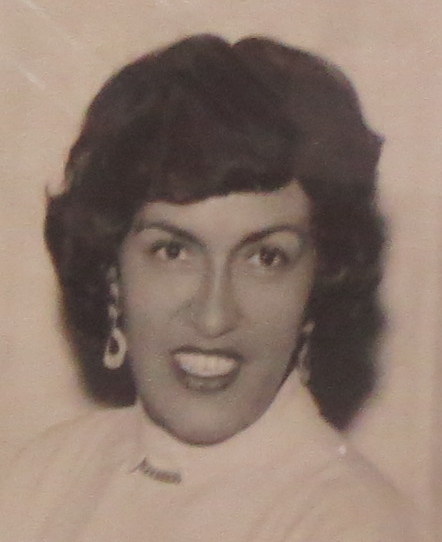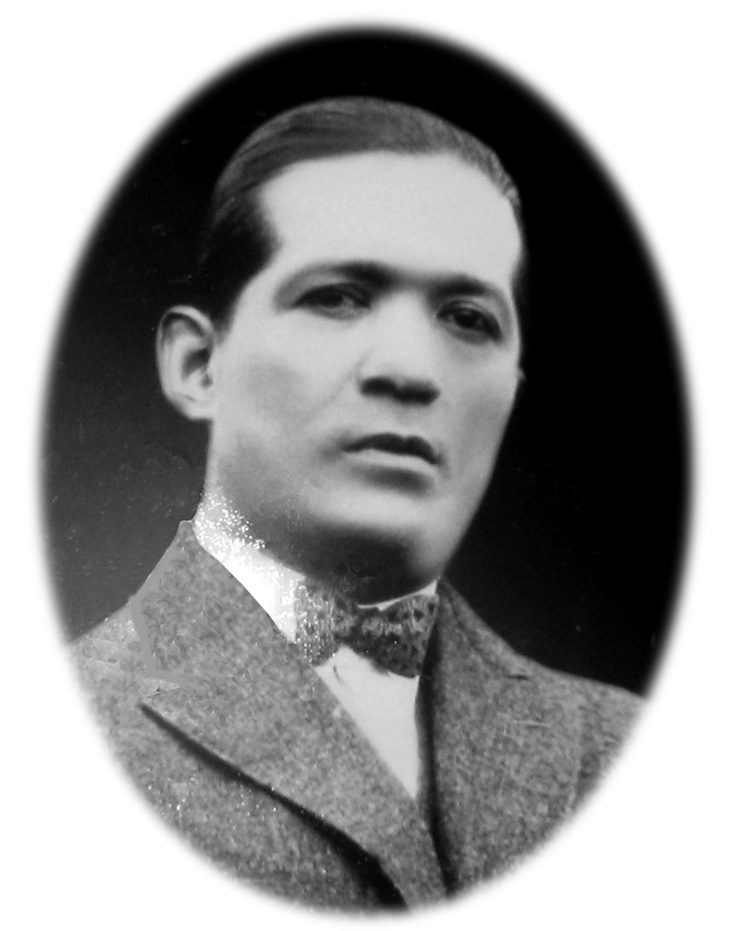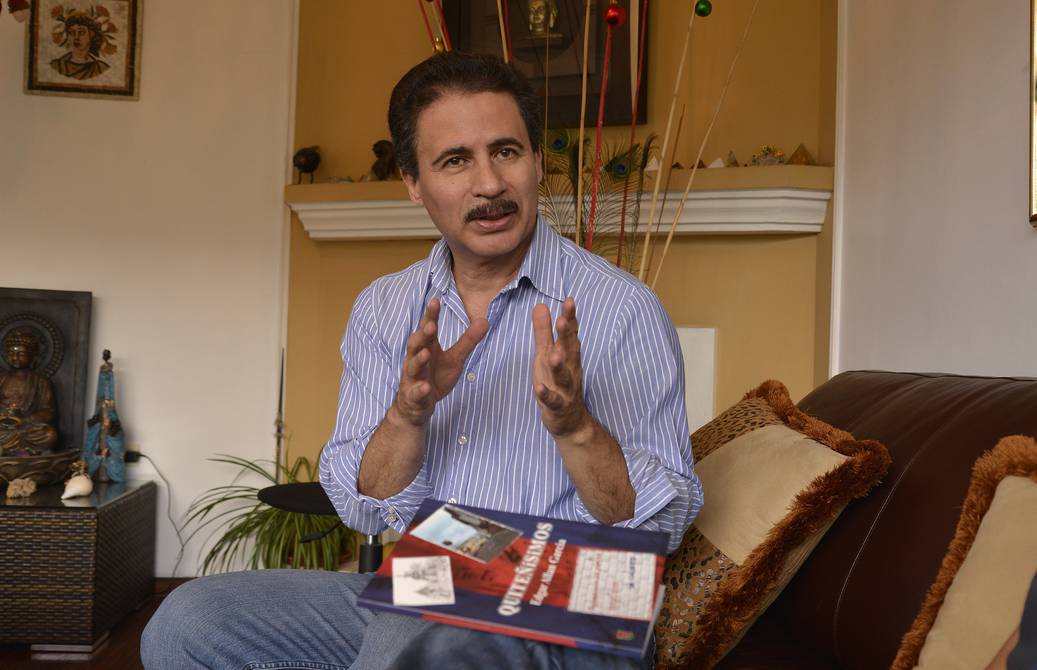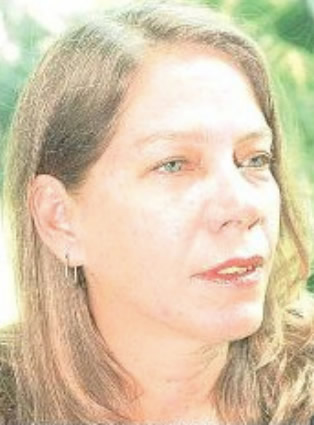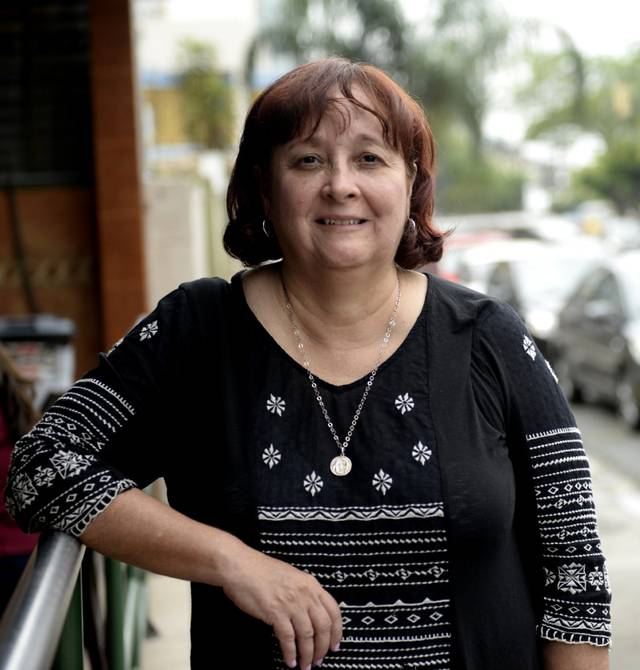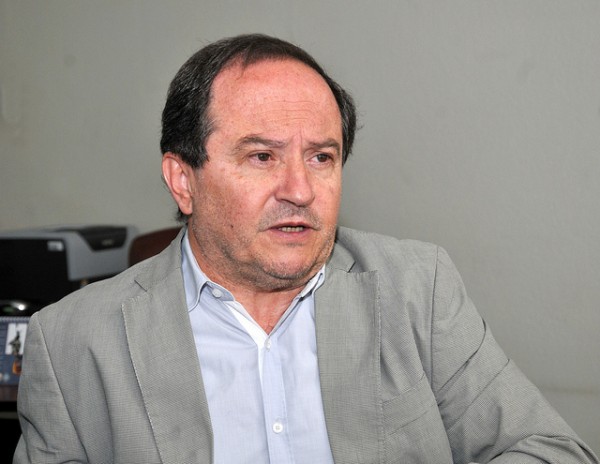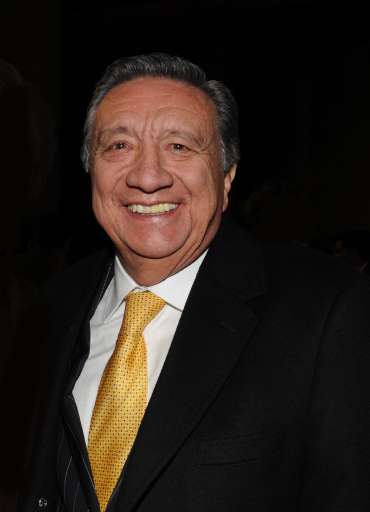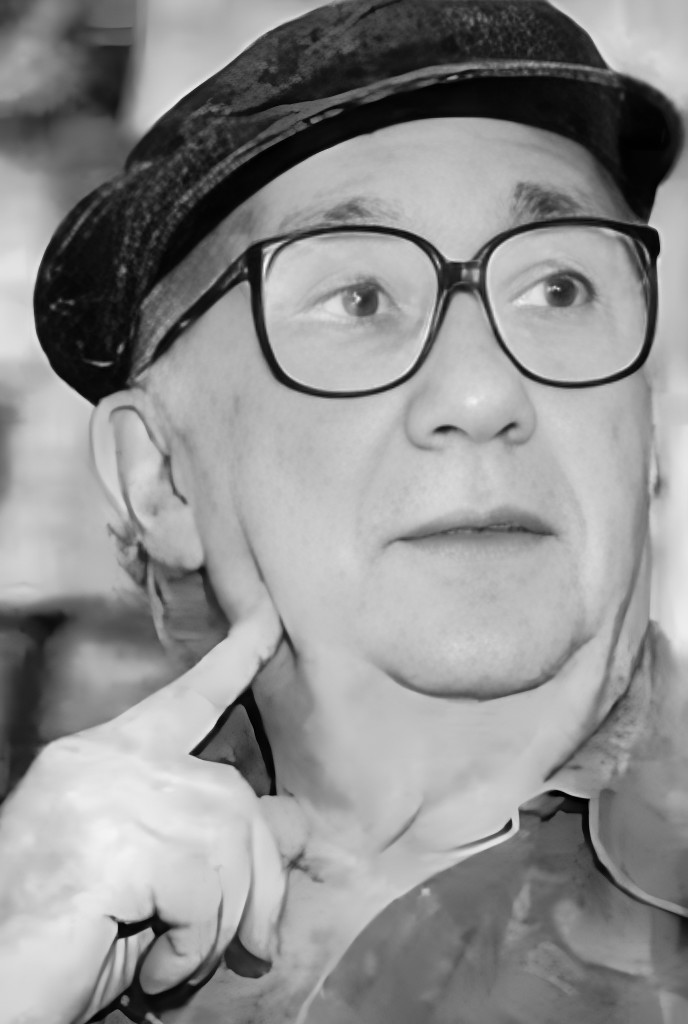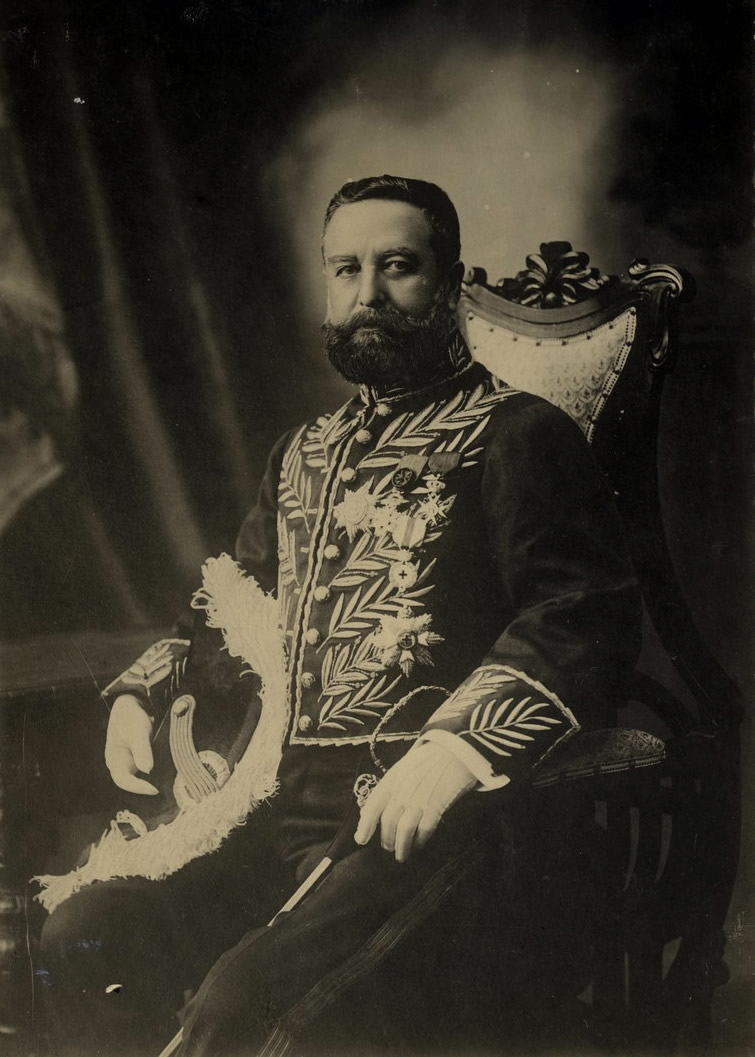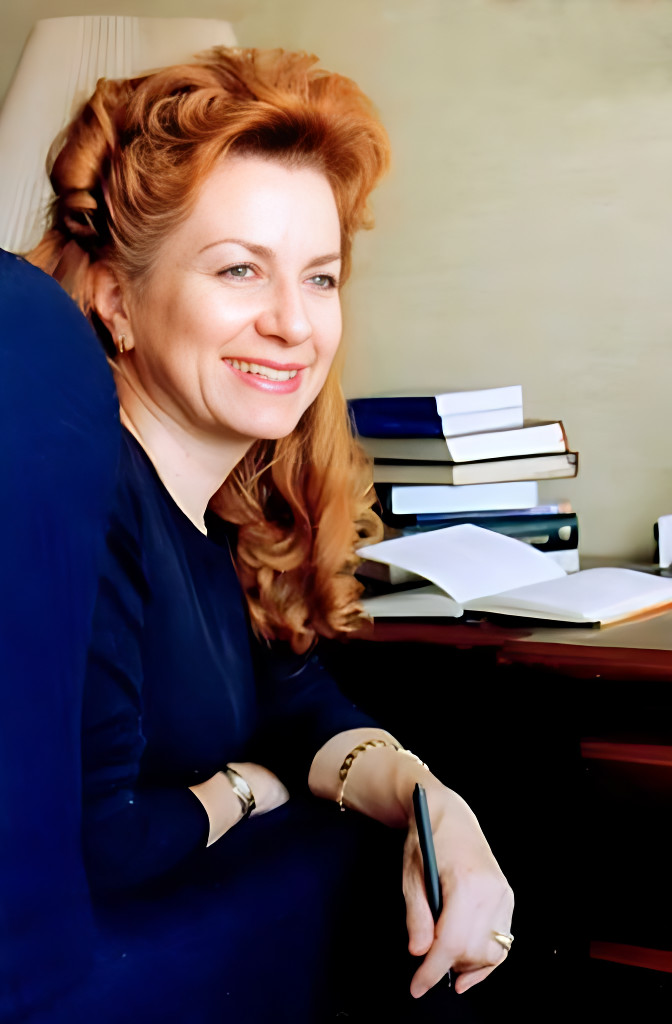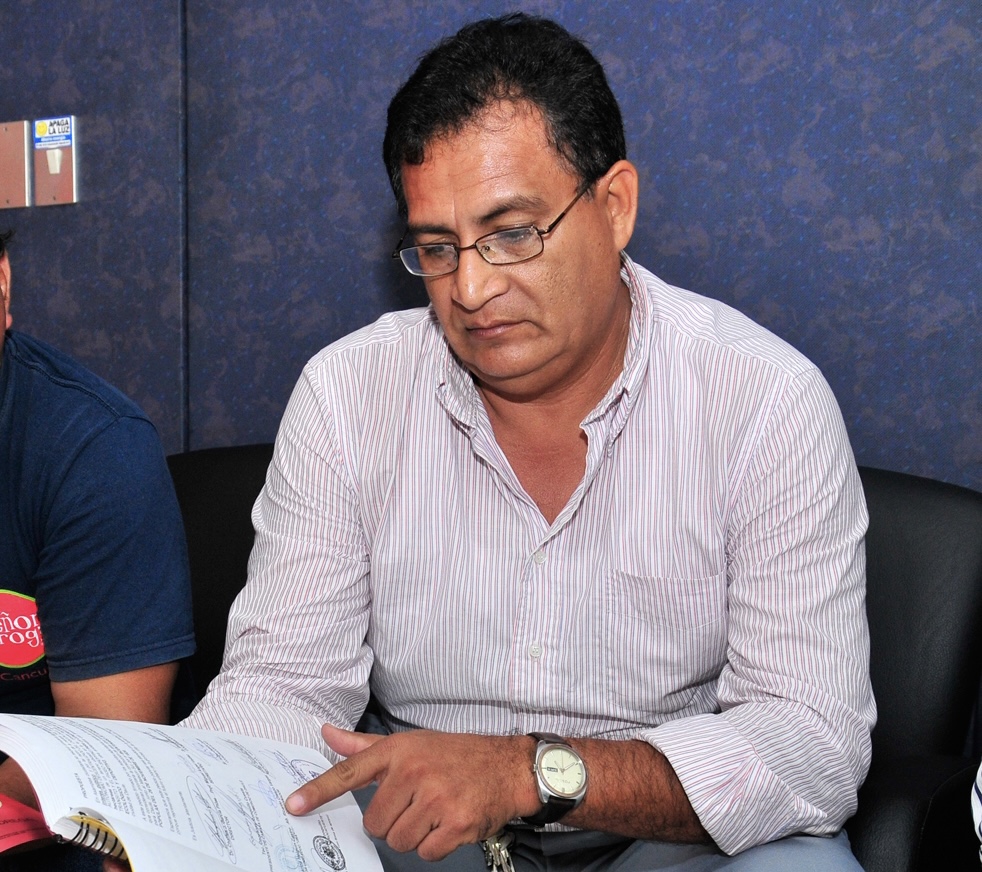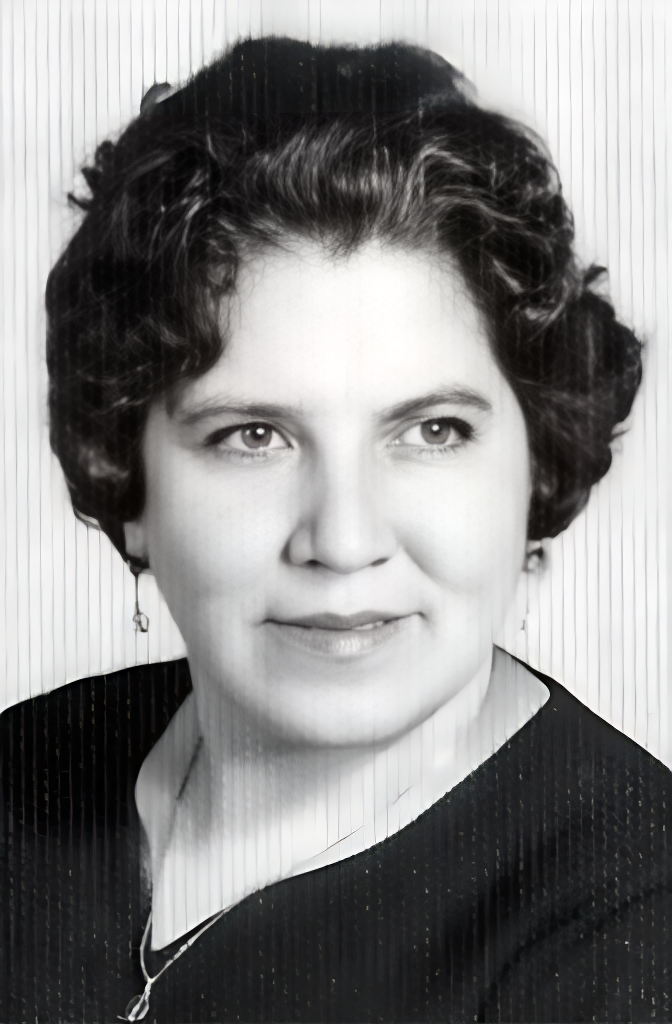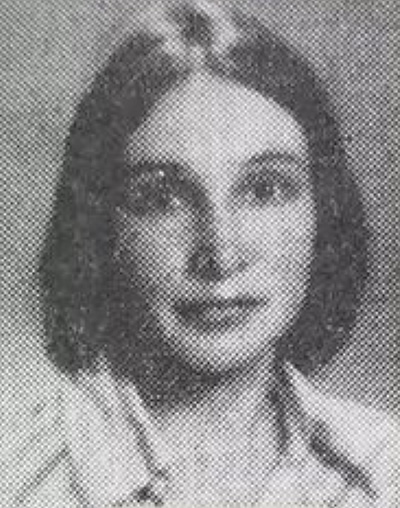Enrique Noboa Arízaga (Cañar, January 22, 1921 – September 10, 2002) was an Ecuadorian poet and public official who held positions such as Director of Education of Cañar, National Vice President of the House of Ecuadorian Culture, Undersecretary of the Ministry of Culture, among others. His poetry collections include: “Orbita de la pupila Iluminada,” “Ambito del Amor Eterno,” “Biografía Atlántida,” “Las Posadas de Otoño” and “Poética.” He was awarded a “Gold Medal” in the Ibero-American poetry contest in Uruguay, “Capulí de Oro” in Ambato, and First Prize in the “Ismael Pérez Pazmiño” poetry contest, to name a few. He was nicknamed “Oso” [Bear] by his friends due to his corpulent body. Several schools in Ecuador bear his name.
Continue reading “Enrique Noboa Arízaga”Category: 20th Century Writers
Eugenia Tinajero Martínez
Eugenia Tinajero Martínez (Quito, January 10, 1922 – April 6, 2009) was an Ecuadorian painter, university professor and writer. Tinajero Martínez hailed from a distinguished lineage, being the descendant of renowned Ecuadorian authors Luis A. Martínez and Juan Leon Mera. Her best-known literary work is “Leyendas indígenas” (1954), a collection of stories that focus on the Indian motif. She spent several years in the United States and was a respected professor at Harvard University, where she had previously studied. The majority of her artwork is held in both public and private collections in the Ecuadorian cities of Quito and Ambato.
Continue reading “Eugenia Tinajero Martínez”Juan Pablo Muñoz Sanz
Juan Pablo Muñoz Sanz (Quito, March 13, 1898 – Quito, August 5, 1964) was an Ecuadorian writer, music critic, composer, and pianist. In 1944, he assumed the role of rector at the Quito National Conservatory, simultaneously taking charge of its orchestra, which later evolved into the esteemed National Symphony Orchestra. Additionally, Juan Pablo shared his expertise as a professor of Spanish, literature, and philosophy. Among his books are: “La Música en Quito” (1934), “Glosario de Amiel” (1936), “La música ecuatoriana” (1938), and “Nacionalismo y americanismo musical” (1938).
Edgar Allan García
Edgar Allan García (Guayaquil, December 17, 1958) is an Ecuadorian writer and cultural promoter. He has 74 books to his credit, including short stories, poetry, novels, biography, nonfiction, essays and children’s literature. His works have been published in Ecuador, Spain, Peru, Mexico and Argentina. His book “Leyendas del Ecuador” is read in primary and secondary schools while his young adult novel “El rey del mundo” was chosen as part of Argentina’s national reading program. His poetry and short stories have also been included in several anthologies, and in 2010 he was included in Jaime García Padrino’s “Great Dictionary of Latin American Authors of Children’s and Youth Literature.” He also serves as the director of Ecuador’s José de la Cuadra National Book and Reading Plan. Some of his stories have been translated into French.
Continue reading “Edgar Allan García”Gilda Holst
Gilda Holst Molestina (Guayaquil, 1952 – Guayaquil, October 22, 2024) was an Ecuadorian writer and university professor. Known for her use of irony and humor, her works addressed themes of gender inequality and societal norms. She authored three notable short story collections: Más sin nombre que nunca (1989), Turba de signos (1995), and Bumerán (2006), as well as the novel Dar con ella (2000). Her work was included in several anthologies, including Cruel Fictions, Cruel Realities: Short Stories by Latin American Women Writers (1997), edited and translated by Kathy S. Leonard. In 2021, Editorial Cadáver Exquisito released her Obra completa (Complete Works). Holst was also a key figure in Ecuadorian literature, a professor at the Universidad Católica de Santiago de Guayaquil, and director of its School of Letters.
Continue reading “Gilda Holst”Maritza Cino
Maritza Cino Alvear (Guayaquil, 1957) is an Ecuadorian poet and university professor. She has published 8 poetry collections and a collection of 23 short stories entitled “Días frívolos” [Frivolous Days]. Her poems have appeared in Latin American and Spanish magazines, as well as U.S.-based online magazines. In addition, some of her poetry has been translated into English, Italian and French. Her latest poetry collection “El temblor de los huertos” [The Tremor of the Orchards] was published in 2022.
Continue reading “Maritza Cino”Javier Ponce
Javier Ponce Cevallos (Quito, April 28, 1948) is an Ecuadorian author, journalist, and politician. Additionally, he spent many years working as an editorial writer for the newspapers El Universo and Hoy. He has held various public posts, including Minister of Defense (2008–2012) and Minister of Agriculture, Livestock, Aquaculture, and Fisheries (2012–2017), both held under President Rafael Correa’s administration. In 1982, he published his first book of poetry, “A espaldas de otros lenguajes,” followed by “Escrito lejos” (1984), “Los codices de Lorenzo Trinidad” (1984), “Texto en ruinas” (1999) and “Afuera es la noche” (2000). In 1990, he wrote his first novel, “El insomnio de Nazario Mieles,” followed by “Es tan difícil morir” (1994), and “Resígnate a perder” (1998) whose plot revolves around a character named Santos Feijó, the director of Quito’s Historical Archive, and his two loves, a woman named Nadja and a transvestite prostitute known as “Caramelo.”
Continue reading “Javier Ponce”Marco Antonio Rodríguez
Marco Antonio Rodríguez (Quito, 1941) is an Ecuadorian short story writer and essayist. He is a numerary member of the Ecuadorian Academy of Language. His most famous book is a short story collection entitled “Historia de un intruso” which consists of 10 short stories. In 1967, it won the best Spanish language book in the Leipzig International Book Fair (Germany), where other participants included Mario Vargas Llosa, Julio Cortázar, and Carlos Fuentes. He has also written over 20 books on visual arts. In 2020 he published a collection of all his stories in a book entitled “Todos mis cuentos,” which includes his previous collections: “Cuentos del rincón,” “Historia de un intruso,” “Un delfín y la luna,” and “Jaula.”
Continue reading “Marco Antonio Rodríguez”Jorge Rivadeneyra
Jorge Rivadeneyra Altamirano (Riobamba, 1930) is an Ecuadorian novelist, short story writer, essayist, columnist, and professor. His first novel, “Ya está amaneciendo,” appeared in 1957. He has written several books of short stories, including: “Encrucijada” (1960), “Ismata” (1993), and “Chacamandaca”(2015). Since 2002, he has lived in Caracas, Venezuela, where he has taught doctoral students at Venezuela’s Central University as a Professor of Social Sciences.
Continue reading “Jorge Rivadeneyra”Paulo de Carvalho Neto
Paulo de Carvalho Neto (Simão Dias, Sergipe, Brazil, September 10, 1923 – Rio de Janeiro, August 17, 2003) was a Brazilian anthropologist, ethnologist, folklorist, writer, novelist, and essayist. Because of his research and study of oral traditions in Ecuador and other countries he is considered the progenitor of “folklore” as a field of study in Latin America. He lived outside of Brazil for many years, including Paraguay, Uruguay, Chile, Ecuador (for 6 years), and the United States (for 17 years) where he taught at UCLA. In January 1960 he was appointed Cultural Attaché of the Brazilian embassy in Quito, Ecuador’s capital with the mission of organizing a Center for Brazilian Studies there. He collaborated with Benjamín Carrión of the House of Ecuadorian Culture (CCE), and together with poet Jorge Enrique Adoum and artist Oswaldo Guayasamín founded the Ecuadorian Institute of Folklore. He taught classes at the Faculty of Philosophy and Literature of the Central University of Ecuador. He also co-founded, and directed, the Revista del Folklore Ecuatoriano [Ecuadorian Folklore Magazine], published by the House of Ecuadorian Culture. Several of his books on folklore theory, including “The Concept of Folklore” and “Folklore and Psychoanalysis” were translated into English by Jacques M.P. Wilson and published by University of Miami Press in the late 60’s and early 70’s. In 1972, he published a neo-Indiginest novel entitled, “Mi Tío Atahualpa” [My Uncle Atahualpa], about the Ecuadorian Indians in the highlands of Quito, which has been translated into Portuguese, Finnish, German, and Dutch.
Continue reading “Paulo de Carvalho Neto”José Peralta
José Peralta Serrano (Chaupi-Yunga, Gualleturo, present day Cañar, 1855 – Quito, December 27, 1937) was an Ecuadorian lawyer, politician, diplomat, educator, writer and journalist who founded several liberal journals in the 19th and early 20th century. He is considered the greatest ideologue of the Liberal Revolution. His works, such as “¿Ineptitud o traición?” (1904), “Tipos de mi Tierra” (1910), “El régimen liberal y el régimen conservador juzgados por sus obras” (1911), and “Eloy Alfaro y sus victimarios” (1951) are an invaluable part of Ecuadorian literature’s heritage. He was an ally of Eloy Alfaro (President of Ecuador from 1895 to 1901 and from 1906 to 1911) and held various diplomatic and public posts during Alfaro’s rule. He was one of the drafters of the 1906 constitution. He was proposed by Alfaro as a candidate to succeed him as president of the republic, which he declined in order to avoid violence from conservatives factions.
Continue reading “José Peralta”Rocío Durán-Barba
Rocío Durán-Barba (Quito, 1956) is a Franco-Ecuadorian writer, poet, novelist, essayist, journalist, and painter. With over seventy published works across multiple genres, her literary contributions span both Spanish and French, often exploring themes of identity, culture, and revolution. Durán-Barba’s debut novel, París sueño eterno (1997), earned critical acclaim and was translated into French by Claude Couffon. In addition to her literary career, she has been an influential figure in academia, cultural diplomacy, and the arts, having worked with UNESCO and exhibiting her artwork internationally. Durán-Barba currently resides between Paris and Geneva.
Continue reading “Rocío Durán-Barba”Charles J. García Plúas
Dr. Charles J. García Plúas (Daule, 1964 – April 5, 2020) was an Ecuadorian writer, editor, biographer, historian, professor, researcher, and cultural promoter. He was a Language and Spanish professor with a doctorate in Education Sciences. He belonged to various cultural organizations in Ecuador. He authored over twenty books that narrate the history of towns settled on the banks of the Daule River, including Balzar, Colimes, Santa Lucía and others. He served as the Subdirector of Culture and Education of the Municipality of the Daule canton. In 2020, the Guayas chapter of the House of Ecuadorian Culture named a virtual festival in his honor. In 2021, the new Municipal Cultural Center (Centro Municipal de Cultura) of Daule, a three-story building which will house a museum, library, and more, was named “Dr. Charles García Plúas.”
Continue reading “Charles J. García Plúas”Lola Orbe Carrera
Lola Orbe Carrera, born Luz María Dolores Orbe Carrera (Otavalo, March 31, 1920 – Quito, August 16, 2004) was an Ecuadorian writer, poet, teacher, director of schools and colleges in the province of Imbabura. In 1954, UNESCO awarded her a scholarship to Uruguay and Argentina. She wrote poetry, essays, hymns, biographies, among others. She admired and corresponded with the Chilean poet Gabriela Mistral.
Continue reading “Lola Orbe Carrera”Mariana Cristina García S.
Mariana Cristina García Salvador (Quito, June 8, 1955 – Quito, 1985) was an Ecuadorian poet, essayist and journalist. Her poetry works include: “De Alfa a Omega” (1972), “Cantos Transparentes” (1974), “De la voz Innumerable” (1977), “Con la prisa de la vida en las manos” (1983), and “Voces para recordar” (1987, published posthumously). As a journalist, she collaborated with some of the country’s newspapers and magazines in the 1970s and 1980s, including El Comercio and Diario Expreso.
Continue reading “Mariana Cristina García S.”